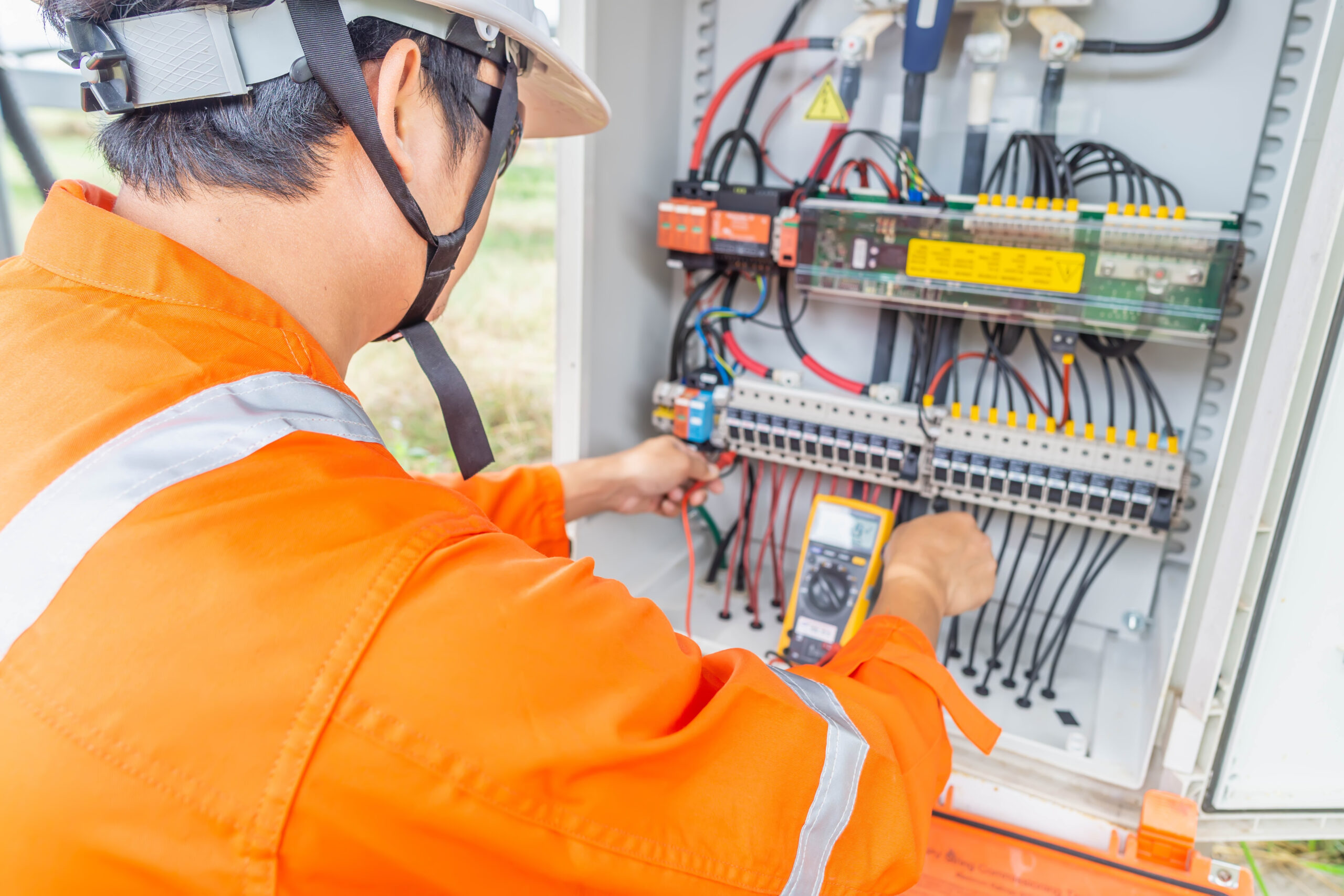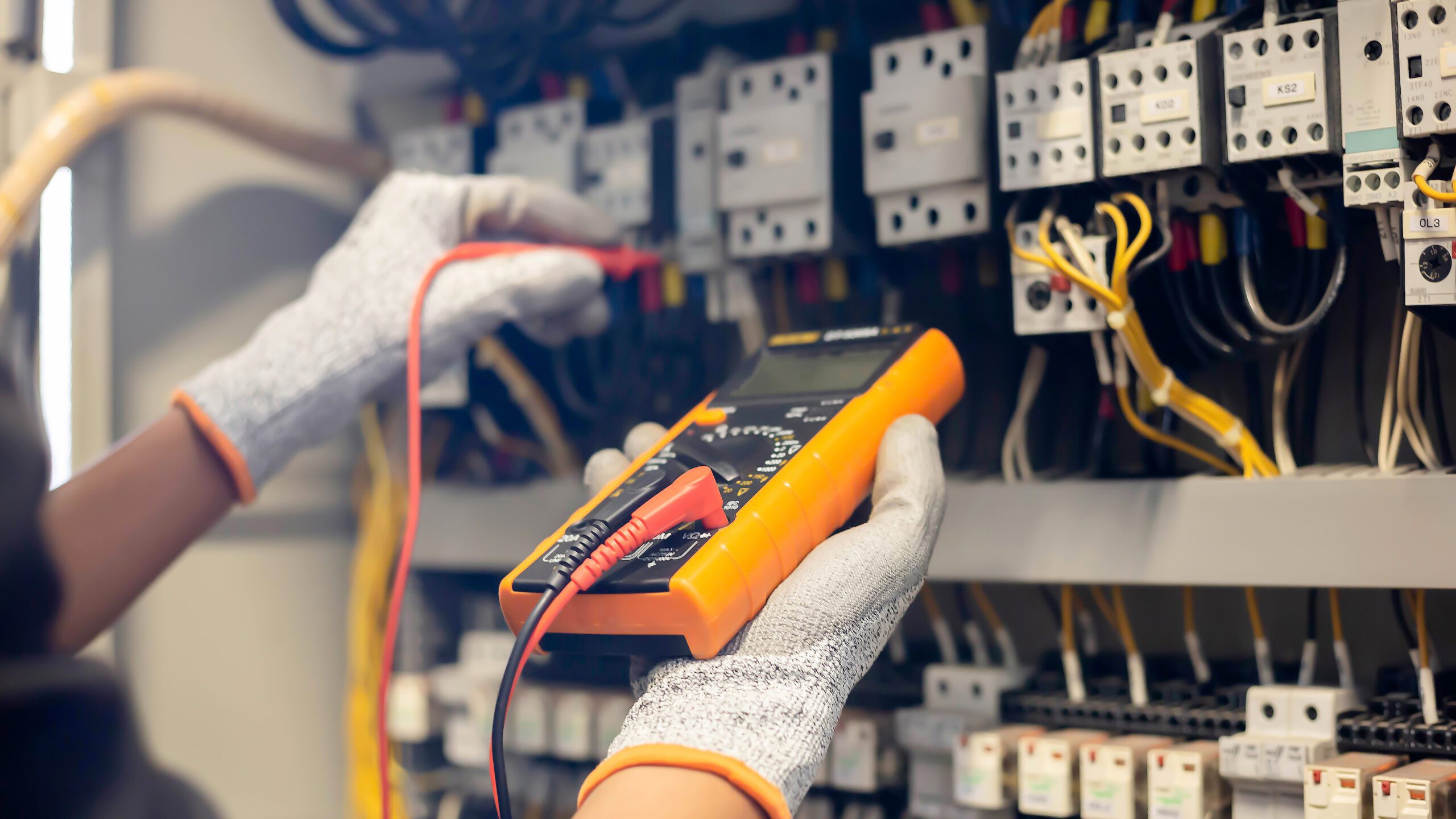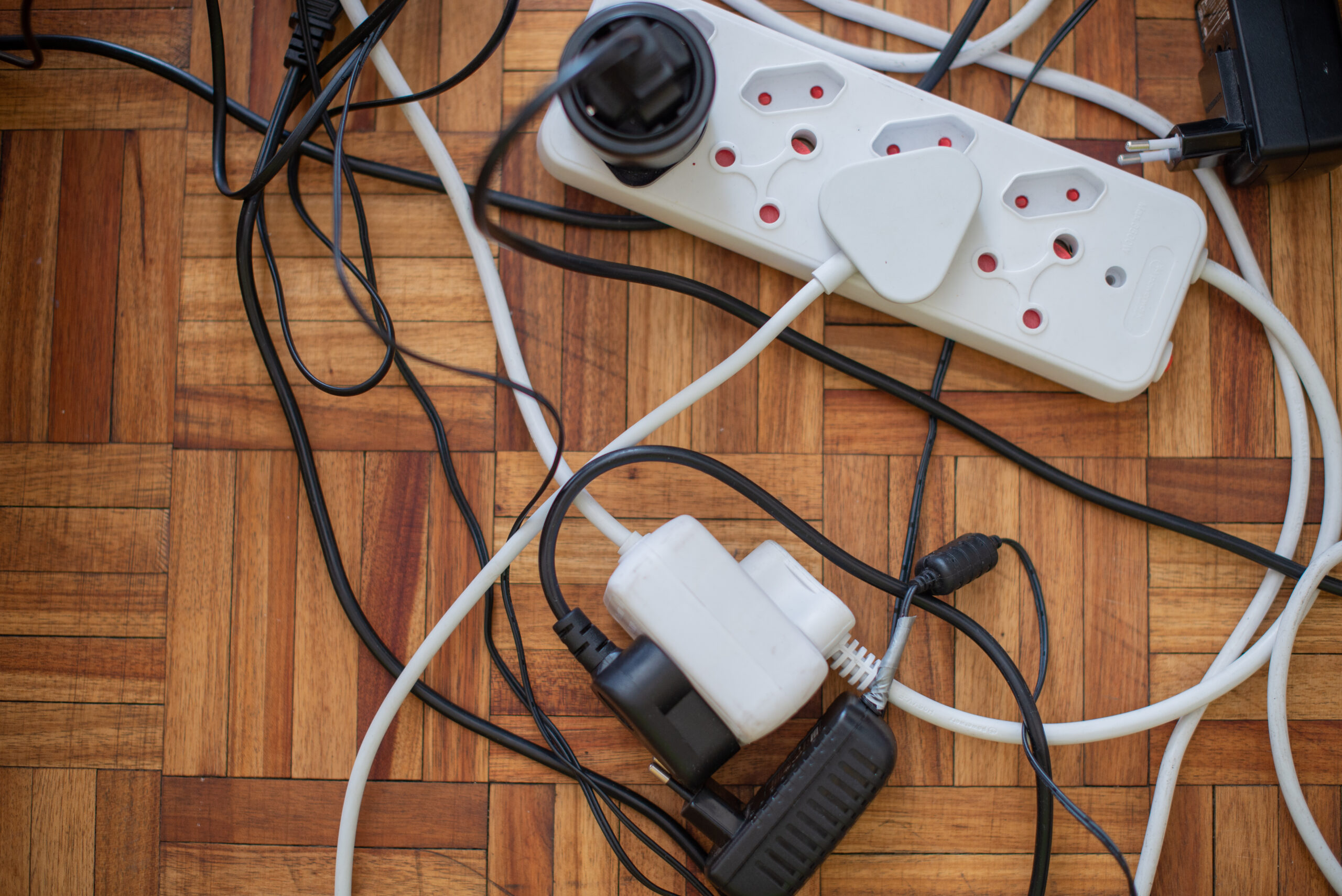Electrical Safety
If you have any electrical fault within your home, please contact LHP immediately, please do not use the electrical item until it has been checked by a qualified electrician.
Faults would include but not be limited to:
- Total or partial loss of electricity in your home
- Damaged/faulty plug sockets
- Damaged/faulty Lighting fixtures
- Electrical distribution boards
- Electric Showers
- Electric water heaters
- Exposed electrical wiring
Electrical installation inspection
LHP will carry out a full inspection of the electrical installation at each property, The inspection is referred to as an EICR. The purpose of an EICR (formally known as periodic inspection and testing of an electrical installation), is to determine, so far as is reasonably practicable, whether the installation is in a satisfactory condition for continued service.
What is EICR Testing?
An Electrical Installation Condition Report (EICR) is essential electrical testing that thoroughly examines the electrical wiring installation and systems. LHP’s qualified electricians and approved electrical contractors, have comprehensive training to enable them to perform the EICR test procedure safely. Essentially, this is a thorough check of the electrical wiring and accessories within the property, to ensure its safe for continuous use and operating safety LHP will carry out this test at least once every 5 years.

The EICR Testing Procedure
The qualified engineer will be assessing the overall quality, performance, and safety of the electrical installation within your home. They will be looking out, especially for any deterioration or defects. any sensitive equipment will need to be disconnected/unplugged from the circuits.
The first stage of the test is usually a visual assessment. Equipment i.e. switches, sockets, power outlets, light fittings, and any other fixed equipment. This will be inspected to see if anything needs repairing or replacement. There may be breaks or cracks in equipment. There also may be obvious signs of overheating, in this case investigations will be carried out and the equipment will need replacing. In some older properties, the distribution board may be of an older type which may need be changed for an MCB/RCD board. This electrical upgrade offers far greater protection with RCD, an additional Earth leakage monitors that trip when a fault occurs.
Next, the qualified electrician will have to safety isolate the electrical circuits to enable them to carry out Specific dead testing. This testing is designed to check all electrical wiring to ensure they fall part of a continuous circuit. A qualified electrician will also check the quality of the earthing systems within the installation and determine whether the earth protection is sufficient.
Next, once dead test have been completed Live electrical testing will need to be carried out. these include a precautionary test which will check that in the event of a fault within the wiring system, safety devices will disconnect within the required time limit, Leaving your home in a safe condition.
This test highlights one of the most important reasons for EICR tests. It checks that components are safe and fit for continuous use.

The EICR Report/ EICR Certificate
Once the electrical testing has been completed, LHP will complete an Electrical Installation Condition Report (EICR) also known as an EICR certificate. Along with any certification as required for any follow-on works completed a copy of this can be requested if required.
Certificate results
If the result of the inspection is satisfactory, it is likely that no further action would be needed. However, if the result is unsatisfactory, further remedial works will be required to ensure the repairs are completed the property is left in a satisfactory condition within your home. These works will be planned, and an appointment boked with you, for our qualified electrician to carry out these remedial works.
Regulations came into force on 1 June 2020 that now states it’s a legal requirement that LHP, as a responsible landlord, carry out this safety check at least every 5 years. As such, we will contact you prior to its due date to book in an appointment for one of our qualified electrical engineers to visit and carry out this check.
If you are unavailable for your appointment, please let us know as soon as possible, we will do all we can to accommodate a more suitable date and time for this check. The check itself usually takes between 2 and 4 hours to complete and you are required to unplug appliances to prevent possible damage and plug back in on completion of the test also you are required to have at least £2 credit on your electric meter.
Please be aware, that if 3 appointments are missed or you do not allow LHP engineers access into your home to carry out these vital checks, it may trigger legal action against you to gain access to the property to carry out this very important check.

Electrical safety – Do’s and Don’ts:
The below are just some example of general electrical safety tips for around your home.
Do….
- Always follow appliance instructions for improved electrical safety. “Read the instructions”. Understanding home appliance safety improves both the performance of your device and your personal safety. Should any appliance give you even a slight electrical shock, stop using it immediately and have a qualified electrician or appliance engineers checks it and confirms it is safe before use.
- Replace any damaged electrical cords to keep your home safe. Damaged power cords are a serious residential electrical safety risk, and they can cause both fires and electrocution. All power and extension cords should be checked regularly for signs of fraying and cracking, and they should then be replaced as needed.
- Unplug all your unused appliances to reduce potential risks. One of the simplest electrical safety tips is also one of the easiest to forget: when an appliance is not in use, unplug it this could also save you money on your electricity bills appliances on standby still has a running cost.
- Keep electrical devices and outlets away from water to prevent shock. Water and electricity don’t mix well. To follow electrical safety rules, keep electrical equipment dry and away from water helps to prevent damage to appliances and can protect against personal injury and electrocution.
- Space is required for your appliances proper space for air circulation to avoid overheating. Without proper air circulation, electrical equipment can overheat and short out, and can become an electrical fire hazard. Make sure your appliances have proper air circulation and avoid running electrical equipment in enclosed cabinets.
Do not….
- DO NOT overload sockets and extension leads check the instruction before use protect your home. Overloading an electrical outlet is a common cause of electrical problems.
- Do not tamper with or make alterations to portable/fixed appliances within your home.
- Do not tamper with or make alterations to the wiring within your home. If you require alterations or additions (such as extra plug sockets or extra/different lighting etc.) please contact LHP.
- Do not use extension cords or multi-outlet converters/adaptors for appliances. Power cords should not be stapled into place or run under rugs and furniture. Cords under rugs pose a tripping hazard and can overheat, while furniture can crush cord insulation and damage wires.
- Do not cover or block exhaust vents on electrical products, such as fan heaters, fridge/freezers etc.
- Do not overload electrical sockets and extension leads. This could lead to overloading the electrical circuit and could even lead to fire check rating of the extension lead.
- Do not leave lithium cell items such as mobile phones and scooter chargers charging overnight these batteries are safe during normal use, but present a fire risk when over-charged, short-circuited, submerged in water, or damaged. They are a main cause of waste fires and can be extremely dangerous when thrown away with general rubbish, or mixed with other recyclable materials like card, metals, and plastics. lithium cell batteries
If you have any concerns about electrical safety within your home, please contact us.
